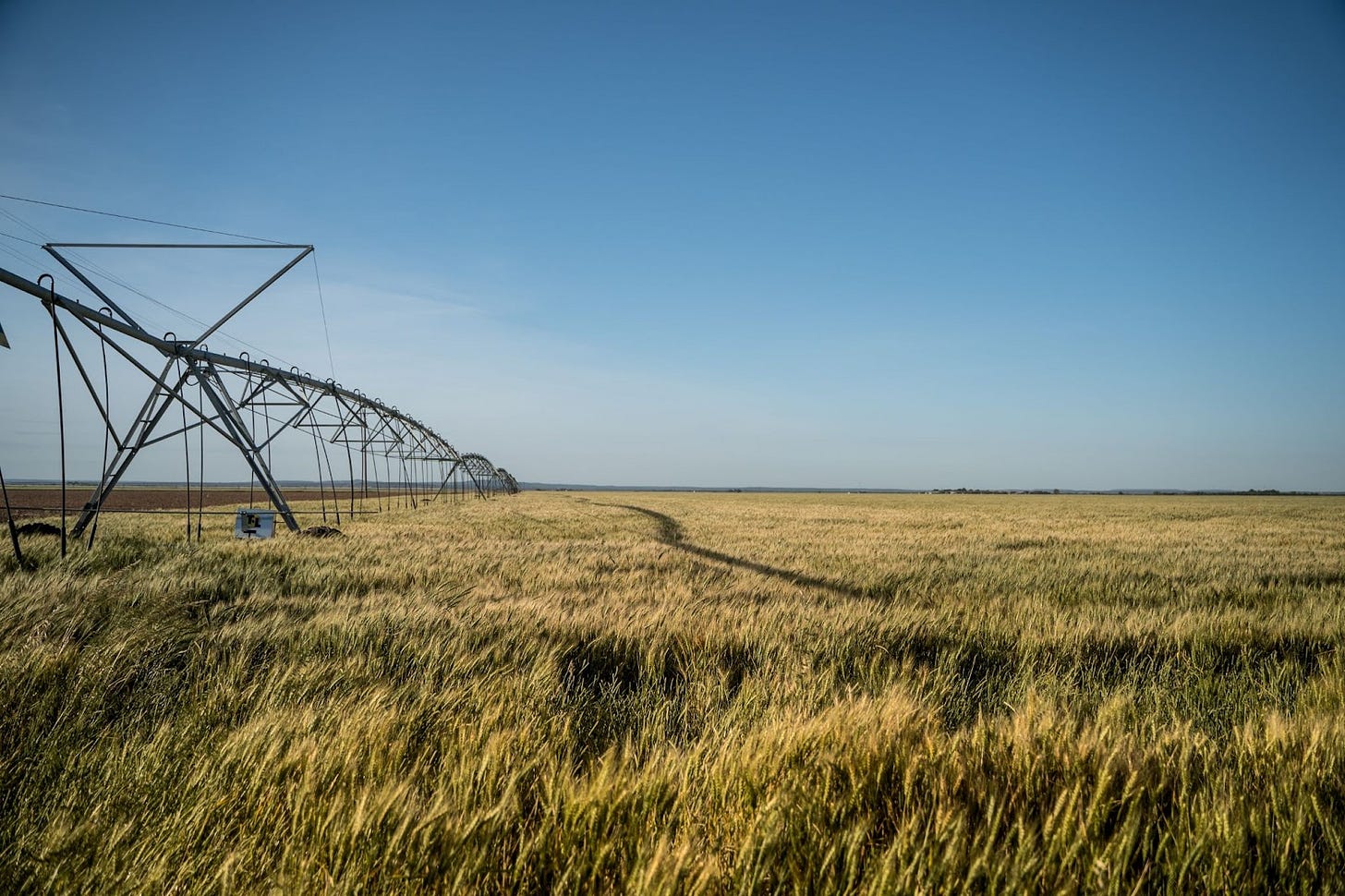Reimagining sustainable food systems
Looking back at our webinar on innovation for food loss and waste prevention.
Approximately one-third of all food produced is lost or wasted, resulting in enormous quantities of wasted resources and greenhouse gas emissions. We recently co-hosted a webinar with Valo Ventures, focusing on food loss and waste prevention. The event highlighted innovative startups tackling the issue through agricultural optimization, supply chain resilience, and transforming would-be waste into valuable resources. By embracing these solutions, we can create a brighter future for our food system that benefits both the planet and our growing population.
By: Lindsey Higgins, Head of Climate Insights
Our food system needs an overhaul. The way we produce, transport, store, and consume food is responsible for as much as 37% of global greenhouse gas emissions and 70% of freshwater withdrawals, as well as biodiversity loss, soil degradation, and the introduction of pollutants into our waterways. Unfortunately, as intensive as our agricultural programs already are, we have eight billion people to feed and that number is rapidly increasing. So as our population continues to climb, we’ll be tasked with higher food demand than ever before.
In the face of this growing demand is the complicating fact that nearly one-third of all the food we produce is lost or wasted somewhere between the farm and our plates. That’s more than one billion tonnes of food annually, or enough to feed two billion people, representing 8-10% of global GHG emissions. And this is likely a conservative estimate because we don’t have the data to reflect the situation's magnitude accurately.
However, where there is a problem, there is also an opportunity, so we came together with Valo Ventures to co-host a webinar on the topic of food loss and waste prevention. The event featured one expert speaker and three startup founders (two from our own portfolio) and was centered around one question: how can venture capital help turn the tide on this massive global issue?
What are food loss and waste?
To set the scene, Alexandria Coari, VP of Capital, Innovation & Engagement at ReFED, a US nonprofit organization dedicated to ending food waste, explained the difference between loss and waste. Food loss happens when food is damaged or destroyed before it can reach the consumer. On the other hand, food waste is when edible food is unnecessarily discarded. Food loss is more concentrated in developing countries, while food waste is more prevalent in the Global North.
To help understand the depth of the issues and the actions that are needed, ReFED has developed a free online tool called The ReFED Insights Engine. Six different tools are available here, including a Solutions Database that allows you to filter top solutions by impact metrics. If you filter on climate, you are given a quick list of solutions, along with emissions reduction potential and annual investment required. Each solution also has a fact sheet that breaks down all of the impact metrics as well as financial benefits and where they see the opportunity for private, public, and philanthropic financing to play a role.
ReFED also has a Capital Tracker that shows the flow of capital invested into food waste solutions over the years, and through the Food Waste Funder Circle, offers monthly deal flow reports for companies currently raising rounds. According to ReFED’s work, about $18 billion is needed annually to end food loss and waste, but a four-to-one return on investment is possible with a net financial benefit as high as $74 billion.
Meet the startups changing the game
The three startups featured in our webinar came from different points along the food production value chain, covering agricultural optimization, supply chain resilience, and even upcycling of what would have been considered waste.
Phytoform, represented by co-founder and CEO William Pelton, is making agriculture more sustainable by unlocking the genetic potential of plants. The Phytoform platform uses machine learning and genetic editing to future-proof crops in months, rather than years. This allows them to use a plant's own DNA to make it easier to harvest without damage, for example. Last year, $6 billion worth of food was lost to drought stress, and Phytoform aims to make those losses a thing of the past.
Next up was Benjamin Rubin, co-founder and CEO of SnoFox, a data analytics company that optimizes energy use in cold storage facilities. SnoFox takes data that these facilities are already collecting to create a digital twin and comprehensive thermodynamics analysis that allows managers to improve cooling efficiency, cut energy demands, and reduce downtime. The potential benefits are enormous, especially as an estimated 526 million tonnes of food is lost to inadequate refrigeration annually.
Finally, we heard from Hyfé co-founder and CEO Michelle Ruiz about giving value to what would otherwise go down the drain. Hyfé takes wastewater from food manufacturing and turns it into a low-cost fermentation feedstock for biomanufacturing, driving down the costs of fermentation and preventing methane emissions from the would-be wastewater treatment process. According to Hyfé’s estimates, about 26 billion kg of nutrients get washed away in US food manufacturing wastewater each year, and that amount is not even counted as food waste.
The challenges posed by our current food system are daunting; however, amidst these challenges lies an opportunity for change and innovation. By unlocking the genetic potential of plants, optimizing energy use in cold storage facilities, and transforming wastewater into valuable resources, these startups are making significant strides toward a more sustainable and efficient food system. As we continue to address the growing demand for food in a world facing increasing population and environmental challenges, we must recognize that we can turn the tide on food loss and waste, creating a more resilient and sustainable future for all.
Learn more about food loss and waste prevention opportunities in the webinar recording.





